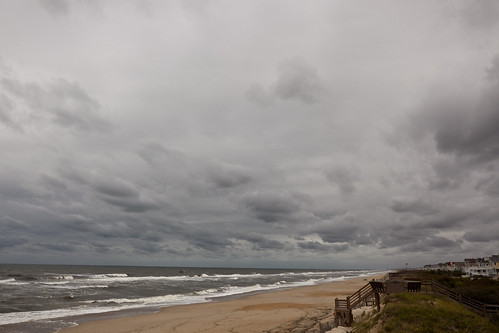
...like an old man trying to send back soup in a deli.
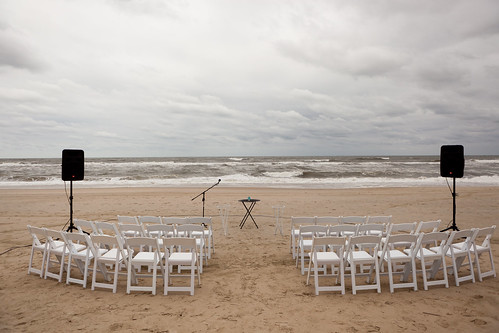
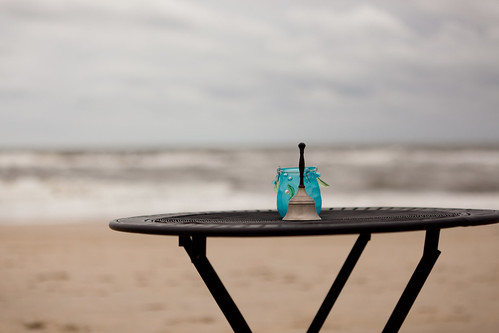
A sneak peek of our wedding on the edge. More to come...

(Come back in a couple weeks for gorgeous photographs from our photographer. And in the meantime, visit our Wedding on the Edge Facebook page to share your own pictures from our wedding!)
 |
| From "Weedrobes" by Canadian environmental artist, Nicole Dextras |
 |
| The "Robe Vegetale" wedding dress by Patrick Blanc |
 |
| The "Sprinkle Dress" by Italian designer Linda Schailon |
Yesterday our very first wedding gift arrived!
All over the world, gifts are the glue that hold societies together. Gifts are given to create new relationships, and strengthen existing ones, and sometimes — as with an engagement ring — to mark a change in the kind of relationship. Somehow, the arrival of this first wonderful gift makes our wedding seem even more real. After all, a wedding is about the union of families, the binding of community, as much as it is about two individuals.
The word gift comes from Proto Indo European ghabh, "to exchange", which descended into Proto Germanic as giftiz and Old Norse as gift or gipt; the Norse used it to mean both "gift" and "good luck". In Old English, giftiz became gift as well, but only referred to a dowry (bride-price); but in Middle English the Norse meaning was borrowed. Among the Germanic tribes, kings were chiefly esteemed by their gift-giving: the more wonderful gifts they could bestow on their followers, the greater their honor and prestige. It was the same with their gods: Odin, for example, had a magic ring called Draupnir, "dripper", which dropped eight golden rings every ninth night. This gift-giving was a custom similar to that of the potlatch of the tribes of the American Northwest.
Spiritually, gift is such an essential concept that the sound 'g' is associated with gift-giving. The word gift specifically indicates an offering which is raised up, held poised, and then released, free to follow its own path.




There we were, hanging out at some relative's house with a bunch of family members, when my mother and one of my aunts start putting their heads together and conspiring — I know! they declare suddenly, Let's just have the wedding right here, right now! And up they get, clearing a space in the living room, moving couches and other bits of furniture aside, elbowing folks out of the way. At first, I'm all for it. Getting to skip ahead to the fun part of actually getting married to the person I love, without having to stumble through the next four months (and one week and five days) of stress and planning? Sure!
But then… people start coming up to me saying things like, "There wasn't much notice, you know," and "We weren't really prepared for all this"… A small bit anxiety starts to rise in me. I explain to them, "Well, we were going to wait, we were going to have a lovely wedding down at the beach in September, it was going to be beautiful…" That phrase repeats over and over in my mind as I try to keep up with the bustling rearrangements of my mother and her helpers. When I try to slow them down, to say maybe we don't need to rush and wouldn't it be nice to just stick to the original plan, she hurriedly shuffles me aside, reassuring me, "Oh, but we'll save so much time and money this way!" I object, "But, I don't want it to feel rushed. I mean, it's an important day, I want it to feel important to everyone else, too." But she smiles brightly and shakes her head. "Oh no, no — you were just going to do some weird Pagan thing anyway, and you hardly invited anyone. What's the difference between that and just getting it done with now?"
"But… it was going to be lovely, it was going to be beautiful…" I murmur helplessly as the rushing continues on around me. "But it was going to be…" Until the anxiety in my chest has become an intense mute protest of panic in my throat, choking off my words, and I can't find Jeff anywhere, they've rushed him off because it's unlucky for him to see the bride before the wedding, and I'm feeling overwhelmed and helpless and I try to cry out, but….


We've been laying down the final plans for the honeymoon (and it's going to be awesome -- I'll have a special post up about it one of these days real soon now), so I thought I'd dig into the origin of the word...
Honey is of uncertain origin, but may go back to a Proto Indo European root something like kanek, meaning "golden". It became khunaga in West Germanic and was probably applied to "honey" at that time. (The word gold comes from a PIE root meaning "yellow / green".) In Old English it became hunig, and honey in Middle English. Spiritually it has qualities of heart and hearth, earthiness, and groundedness, but also high energy.
Moon goes back to Proto Indo European menses or meses, meaning "moon" and "month". This probably is related to the PIE root me, "measure", because the moon was of course associated with measuring time. In most daughter languages of PIE, this root was only retained for "month"; the moon itself got other names (eg selene in Greek, meaning "brightness", luna in Latin from the same root as lux, "light"). The Germanic languages, though, retained the pairing as mænon for "moon" and mænoth for "month". mænon became mona in Old English, and moon in Middle English. During this time it retained is association with time, measurement, and months. Spiritually the word evokes a manifestation of flowing, subconscious energy.
The honeymoon, then, is a month, a season, of flowing, half-conscious sweetness grounded in the heart and earth.
"Where does the family start? It starts with a young man falling in love with a girl - no superior alternative has yet been found.” -- Winston Churchill
"When a parent gives to a child, both laugh; when a child gives to a parent, both cry." -- Shakespeare (paraphrased)
“Writers will happen in the best of families.” -- Rosa Mae Brown
 On the heels of yesterday's post about the legal and religious aspects of tying the knot, I wanted to point family and friends towards the wonderful and inspiring website Offbeat Bride, where they have a whole subcategory for brides who celebrate their wedding day with family and friends after they've gotten the legal ceremony out of the way. (They call it, tongue-in-cheek, "getting weddinged.")
On the heels of yesterday's post about the legal and religious aspects of tying the knot, I wanted to point family and friends towards the wonderful and inspiring website Offbeat Bride, where they have a whole subcategory for brides who celebrate their wedding day with family and friends after they've gotten the legal ceremony out of the way. (They call it, tongue-in-cheek, "getting weddinged.")Those reactions are extremely North American-centric. In most European countries, all couples who wish to get married first have to do so in a civil ceremony. Then, they are free to have a religious wedding if they want. The city hall wedding is often very simple, with only immediate family and witnesses present, and the bride wears a nice but casual short dress, saving the long white dress, veil and big reception for their religious wedding. The most famous example known to us here in America is certainly Eva Longoria’s wedding to French basketball player Tony Parker. She was wearing a short pink Chanel dress to her civil ceremony officiated by the Mayor of Paris, but wore a white and satin silk designer dress with a fifteen foot train for the religious ceremony in a Catholic church the next day. Yet, no one would think of screaming "gift-grab!" or "just playing pretend!" Why? No, it's not just because she's a celebrity. But because it was in the groom's culture to do it that way. In France and almost all of Europe, a bigger wedding after a civil one is not only accepted, but expected.




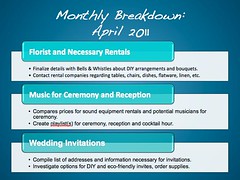


This past Saturday and Sunday, Jeff and I had an actual weekend. No work, no kids, no travel plans or scrambling to meet family obligations. Just an actual two whole consecutive days off to hang around the house. We haven't had one of those since (drumroll please).... August! That's right, it's been six months — half a year. You should have watched us stare at each other slack-jawed with disbelief, unsure how to handle the idea of having guilt-free free time.
In honor of that experience (now that we're back to the grindstone of work and kids), I wanted to share here a post I wrote back in January 2010. Of course, things have changed since then. My change in jobs means that my weekdays are no longer my "off days" and my weekends are devoted more and more to the kids, for whom I will soon be a step-mom even if I'm never really a "parent." I understand better, from experience, the deep guilt that comes with only seeing your kids two days a week, and how unthinkably selfish it feels to take "time for yourself" during those precious hours.... And so I understand, from experience, the fatigue that quickly creeps up on you when all you have are a few hours in the evening after work to claim as your own. Between wedding planning, spiritual practice, creative work and the work we do to make rent, it's no wonder that Jeff and I feel a little burnt out! So in honor of all of his hard work, and in praise of the man I love, please enjoy these reflections on the hard-working, often under-appreciated Weekend Dad.
 Earlier this week, before he passed the cold onto me, my partner Jeff was in bed with the sniffles, bundled up in his bathrobe, happy as a clam in flannel. He would blow his nose with a rumbling, gurgling blast that filled the whole house, and smile at me with bleary eyes, and tell me how glad he was to be sick. It was, he said, as if all the stress of the holidays and work and family and bills that he had been carrying around with him for the past month had finally been shrugged off, and his body could relax enough to address those pesky germs that had invaded. Good riddance!, the message of every sneeze. And watching him cuddle into the blanket and nod off to sleep, I thought how unsung his particular kind of heroism is in our culture.
Earlier this week, before he passed the cold onto me, my partner Jeff was in bed with the sniffles, bundled up in his bathrobe, happy as a clam in flannel. He would blow his nose with a rumbling, gurgling blast that filled the whole house, and smile at me with bleary eyes, and tell me how glad he was to be sick. It was, he said, as if all the stress of the holidays and work and family and bills that he had been carrying around with him for the past month had finally been shrugged off, and his body could relax enough to address those pesky germs that had invaded. Good riddance!, the message of every sneeze. And watching him cuddle into the blanket and nod off to sleep, I thought how unsung his particular kind of heroism is in our culture. But watching Jeff relaxing into his well-earned rest (after putting in a full day's work despite the blocked-up nose and disorientation), I thought about just how hard Weekend Dads do work, at least the good ones. I may sometimes complain about having to work weekends, putting in long hours on my feet without breaks, dealing with sometimes belligerent, hung-over or senile customers for measly tips, but during the middle of the week, my time is my own (and as a natural introvert trying to kick a writing career off the ground, this suits me just fine). Yet here is a man who works non-stop, seven days a week: not an hour after he's finished his salaried work late Friday afternoon and set his computer aside, he's tackled by four lovely, energetic children who quickly claim every room in the house (except the somewhat messy and sparsely furnished "grown-up's bedroom") with their toys, books, blankets and games. All weekend, while I get to slip away to a job where most of the people I interact with will at least behave like polite adults if I treat them as such, he entertains and instructs and comforts children for whom "important" can mean anything from "Jake beat me in Othello by exactly sixteen points, twice!" to "Jocelyn ran into a tree on her sled!" to "I told Sarah to stop and she wouldn't, so I kicked her!" And this man, this mere "weekend dad," engages with these children with unending patience and love, sifting through the inane and the ridiculous, supporting and encouraging wherever support and encouragement are needed. And then, when he's dropped them back at their mom's house each Sunday night, he buckles down and tries to work in an hour or two of personal writing or meditation before it's back to the quiet, industrious, analytical work of the computational linguist the following morning.
But watching Jeff relaxing into his well-earned rest (after putting in a full day's work despite the blocked-up nose and disorientation), I thought about just how hard Weekend Dads do work, at least the good ones. I may sometimes complain about having to work weekends, putting in long hours on my feet without breaks, dealing with sometimes belligerent, hung-over or senile customers for measly tips, but during the middle of the week, my time is my own (and as a natural introvert trying to kick a writing career off the ground, this suits me just fine). Yet here is a man who works non-stop, seven days a week: not an hour after he's finished his salaried work late Friday afternoon and set his computer aside, he's tackled by four lovely, energetic children who quickly claim every room in the house (except the somewhat messy and sparsely furnished "grown-up's bedroom") with their toys, books, blankets and games. All weekend, while I get to slip away to a job where most of the people I interact with will at least behave like polite adults if I treat them as such, he entertains and instructs and comforts children for whom "important" can mean anything from "Jake beat me in Othello by exactly sixteen points, twice!" to "Jocelyn ran into a tree on her sled!" to "I told Sarah to stop and she wouldn't, so I kicked her!" And this man, this mere "weekend dad," engages with these children with unending patience and love, sifting through the inane and the ridiculous, supporting and encouraging wherever support and encouragement are needed. And then, when he's dropped them back at their mom's house each Sunday night, he buckles down and tries to work in an hour or two of personal writing or meditation before it's back to the quiet, industrious, analytical work of the computational linguist the following morning.[*] Granted, the fact that these women remain in such dysfunctional relationships belies certain flaws in their own characters, so that usually after Season One the audience has come to appreciate that, despite their constant (and hilarious) mishaps, these couples were made for (and deserve) each other.
 But this year, things were somehow different. Over the Christmas holidays, when I had been visiting my parents, an earthquake rocked Lancaster County just past midnight. My mom called me on my phone (I was out with a friend) to check if I was all right. And I was. Something was shifting in me, as sure as there was a shift in the land. Something had been shifting for a long time, the tension building up in the stillness of my solitary existence. And that winter, like the earthquake under the rolling hills and desolate, brown-stubbled farmland of my hometown, that tension finally moved within me to a new place of stability and ease.
But this year, things were somehow different. Over the Christmas holidays, when I had been visiting my parents, an earthquake rocked Lancaster County just past midnight. My mom called me on my phone (I was out with a friend) to check if I was all right. And I was. Something was shifting in me, as sure as there was a shift in the land. Something had been shifting for a long time, the tension building up in the stillness of my solitary existence. And that winter, like the earthquake under the rolling hills and desolate, brown-stubbled farmland of my hometown, that tension finally moved within me to a new place of stability and ease.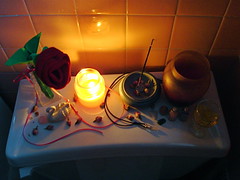 So this Valentine's Day, I dug out the stones and charms I had blessed for that ritual. I poured myself a small glass of mead, sacred honey-wine, into a tiny chalice. I scattered handfuls of dried rosebuds in the tub and drew a bath scented with luscious lavender and vanilla essential oils, and I set up an altar with candles and rose petals and twining pink ribbons on the flat top of the toilet's back. I spoke prayers of gratitude and praise for the earth, and the winter, and the coming spring still so fragile as to be only half a dream within the sleeping, frosted ground. I anointed myself with oils, and stepped gently into the warm, steaming bath, sinking first to my knees to cup the water to my face, washing away the tension and loneliness of previous years. This was not a spell to find love or bring love or attract love — this was a love spell of gratitude and celebration.
So this Valentine's Day, I dug out the stones and charms I had blessed for that ritual. I poured myself a small glass of mead, sacred honey-wine, into a tiny chalice. I scattered handfuls of dried rosebuds in the tub and drew a bath scented with luscious lavender and vanilla essential oils, and I set up an altar with candles and rose petals and twining pink ribbons on the flat top of the toilet's back. I spoke prayers of gratitude and praise for the earth, and the winter, and the coming spring still so fragile as to be only half a dream within the sleeping, frosted ground. I anointed myself with oils, and stepped gently into the warm, steaming bath, sinking first to my knees to cup the water to my face, washing away the tension and loneliness of previous years. This was not a spell to find love or bring love or attract love — this was a love spell of gratitude and celebration. And then I was madly in love, and so was he.
And then I was madly in love, and so was he."How can a woman be expected to be happy with a man who insists on treating her as if she were a perfectly normal human being?" -- Oscar Wilde

An anonymous poem, 19th century,
from The Book of Celtic Verse: A Treasury of Poetry, Dreams & Visions (edited by John Matthews).
"Never marry anyone you wouldn't want to be divorced from."
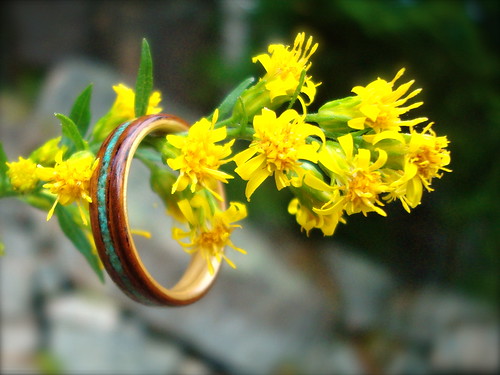
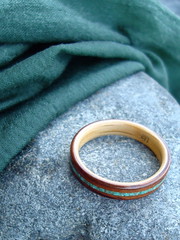 And I said, "Yes! Let's do it! Let's actually get married!" But this was back in February, soon after Valentine's Day. The anniversary of our first date was coming up soon, the first time we met in person after corresponding online for more than three years. We were caught in a whirlwind of warm-fuzzy reminisces of romance in the midst of gray winter doldrums. I honestly can't remember who suggested it first, but suddenly it was a real possibility. We were actually going to get married.
And I said, "Yes! Let's do it! Let's actually get married!" But this was back in February, soon after Valentine's Day. The anniversary of our first date was coming up soon, the first time we met in person after corresponding online for more than three years. We were caught in a whirlwind of warm-fuzzy reminisces of romance in the midst of gray winter doldrums. I honestly can't remember who suggested it first, but suddenly it was a real possibility. We were actually going to get married.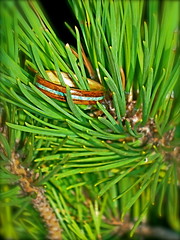 This engagement ring hits all three of our Two Outta Three criteria: it is eco-friendly, Pagan-friendly and, well, despite being the most expensive thing I've ever put on my body, it's pretty gosh-darn budget-friendly, too, all things considered.
This engagement ring hits all three of our Two Outta Three criteria: it is eco-friendly, Pagan-friendly and, well, despite being the most expensive thing I've ever put on my body, it's pretty gosh-darn budget-friendly, too, all things considered.We do our utmost to cause no harm to people or the environment. We certainly have no illusions that our wooden rings will change the world, but each wood ring we make means perhaps, that a little less gold or another diamond is not mined. David uses such a tiny bit of wood to create a ring that we couldn't use up a tree in a lifetime of making wooden rings. We are always striving to lighten the load on our planet.Jeff and I are proud to support (and brag about) independent artisans like David and Nicola, whose lives are devoted to creating things of beauty born of their love of the earth and each other. In an age when blood diamonds and dirty gold desecrate the land and exploit the resources of the earth as well as the people who share it with us, my heart breaks with gratitude to know that there are people out there doing such blessed and important work. Thank you, David and Nicola!
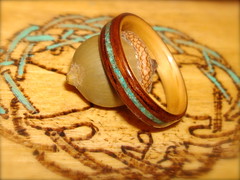 The oak tree is especially sacred to the Druids, whose very name connects them with the great tree as a symbol of wisdom, truth, strength, stability, and a doorway between the worlds. A beneficent and holy tree to the ancient Celts, it was a fitting choice for the inner lining of the engagement ring: a symbol of a sure foundation rooted in trust and truth, balanced between the worlds while also acting as a doorway, a threshold into a new life.
The oak tree is especially sacred to the Druids, whose very name connects them with the great tree as a symbol of wisdom, truth, strength, stability, and a doorway between the worlds. A beneficent and holy tree to the ancient Celts, it was a fitting choice for the inner lining of the engagement ring: a symbol of a sure foundation rooted in trust and truth, balanced between the worlds while also acting as a doorway, a threshold into a new life.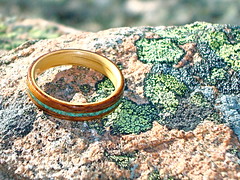 I knew right away that I wanted to incorporate two stones in the band: one to honor my past as an important part of who I'd become, and one to symbolize the new future I was hoping to create with Jeff. For the first, I decided to include a stone from a Valentine's Day love spell I'd performed nearly five years earlier — a spell that, I had long assumed, had failed — and had re-consecrated the Valentine's Day just before meeting Jeff in person for the first time. It was a small piece of tumbled, dark green stone, most likely jade, which I had chosen for its resonance with energies of peace, harmony, healing, balancing and good luck. Jade has long been considered a lucky stone, as well as a stone connected with love and prosperity. In ancient China, a butterfly carved from jade was worn as a love charm. And though I didn't know it then, jade was also the mystical birthstone of March, the month when Jeff and I first met and finally began our romantic relationship.
I knew right away that I wanted to incorporate two stones in the band: one to honor my past as an important part of who I'd become, and one to symbolize the new future I was hoping to create with Jeff. For the first, I decided to include a stone from a Valentine's Day love spell I'd performed nearly five years earlier — a spell that, I had long assumed, had failed — and had re-consecrated the Valentine's Day just before meeting Jeff in person for the first time. It was a small piece of tumbled, dark green stone, most likely jade, which I had chosen for its resonance with energies of peace, harmony, healing, balancing and good luck. Jade has long been considered a lucky stone, as well as a stone connected with love and prosperity. In ancient China, a butterfly carved from jade was worn as a love charm. And though I didn't know it then, jade was also the mystical birthstone of March, the month when Jeff and I first met and finally began our romantic relationship.